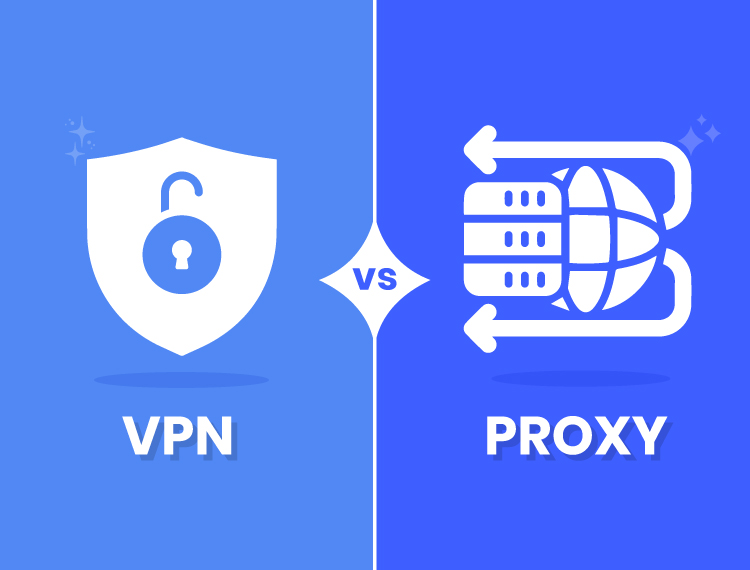Safeguarding your online profile is no longer optional in the hyper-connected digital environment of today; it is necessary. You’ve probably come across words like VPN (Virtual Private Network) and proxy server as you travel the internet. Although both serve as middlemen between your device and the internet, providing some anonymity, their fundamental purposes and the degree of security they offer vary greatly. Knowing these variations helps one to make correct choices about your data privacy and internet security.
Let’s explore the fundamental distinctions between these two strong instruments:
Proxy Servers: Simple Gateway
Imagine a proxy server as a middleman processing your web requests. Using a proxy routes your internet traffic via the proxy server’s IP address, so concealing your own. This could lead one to believe that their online activity starts from the proxy server’s site, so rendering them anonymous and possibly circumventing fundamental geographical limits.
Still, a proxy server’s usefulness is usually somewhat restricted. Most proxies run at the application level, which means they usually manage traffic for a single, particular application, like your web browser. Importantly, most proxy servers do not secure your internet traffic in a way that hides it from third parties. Your information is then exposed to tracking devices, watching eyes, or hostile people.
Important Features of a Proxy Server:
Conceals your initial IP address.
Often set up for certain uses, such as online browsing.
For certain uses, usually simpler to configure than a VPN.
Usually, they don’t secure your online data against third-party access.
Performance can vary significantly depending on the load and location of the proxy server.
Virtual Private Network: Anonymity + Secure Internet Data
Like a proxy, a VPN hides your IP address by routing your internet through the VPN provider’s server and altering your IP address with the server’s own. A VPN, on the other hand, operates at the device level and reroutes your entire device’s internet. Moreover, it creates a secure tunnel between your device and a remote server run by the VPN provider. This tunnel protects and routes all your internet traffic, regardless of the application, through it. Transforming your data into a secure, unintelligible format, this process is the key factor that safeguards it from data breaches, cyber attacks, and even your Internet Service Provider (ISP).
Connecting to a VPN server in another place not only hides your IP address but also allows you to circumvent more complex access limits. Improved VPN companies, such as NovixVPN, frequently incorporate extra security measures, including a kill switch to stop data leakage when the VPN connection fails.
Important VPN Features:
Conceals your initial IP address.
Safeguards every program and online activity on your smartphone.
Secures your internet traffic by rerouting it through a private tunnel.
Let’s you access material from several areas, hence bypassing geographic limits.
Often include a kill switch, unrelenting speed, and more.
Usually provides safe, simple app substitutes for several devices.
Although certain VPN service providers have been reported to have data breaches, current and sophisticated ones like NovixVPN, which are built with modern security architecture, offer no possibility. NovixVPN works hard to guarantee excellent user security. For cyber-savvy consumers, it can be a top pick with its current security features and large worldwide server network to choose from.
What sets them apart?
Full Online Protection (VPN) vs. Single App Cover (Proxy): Unlike a proxy, which typically just conceals what you do in one app, a VPN keeps all you do online secret and safe.
VPNs convert your data into a secret code so others cannot access it; proxies merely change your address. Most proxies simply alter your internet address absent this secret code.
Stopping Bad Guys & Trackers (VPN) vs. Just Getting around Blocks (Proxy): Many times, VPNs provide additional means to prevent online trackers and other unwanted activities. Mostly for getting past website blocks, proxies are
VPNs can sometimes reduce speed due to the added layers of security, while proxies often perform faster because they handle less data protection. However, advanced and premium VPN providers like NovixVPN are designed to deliver high speeds without compromising security.
Which one is superior?
If all you want is fundamental privacy, proxies simply function well. A VPN is the greatest approach for internet safety and privacy. Novix VPN guarantees your online activity remains private and safe, simply and efficiently.

Leave a Reply